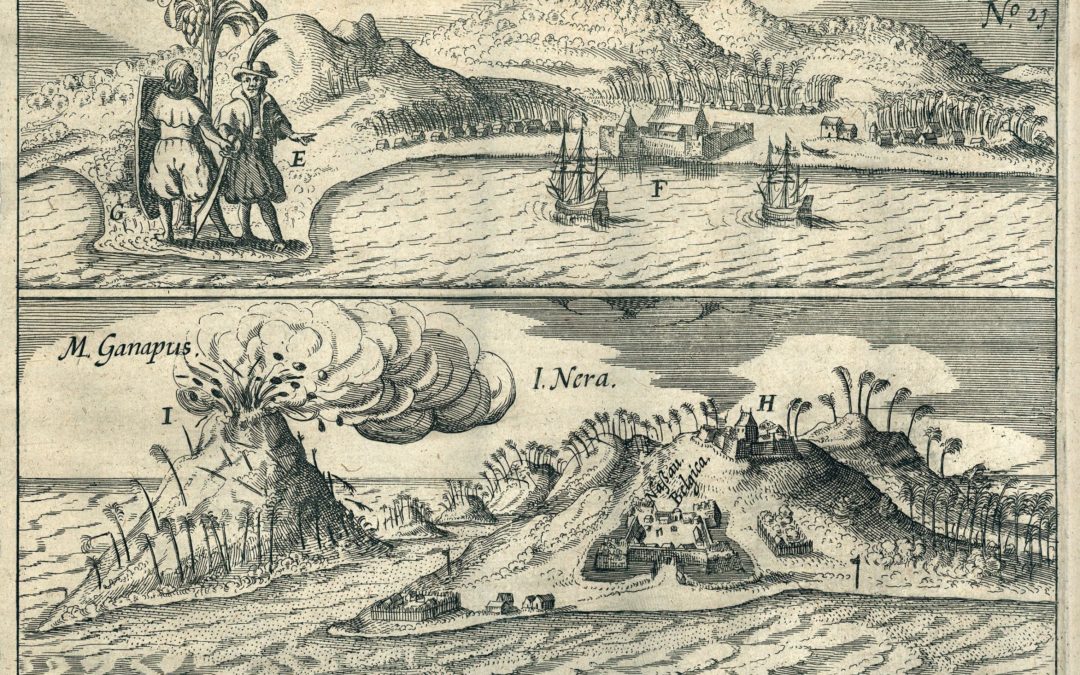From the titles of some of the IHR’s digital resources, you might think that they have limited geographical reach: British History Online…the Bibliography of British and Irish History. But the real world overspills geographical boundaries and the digital world even more so.

1655 engravure of the islands Amboyna (top) and Nera (bottom). National Maritime Museum, London
British History Online has much more to offer than British history, even though that is naturally the focus. Series like the Journals of the Board of Trade and Plantations and the Calendar of State Papers, Colonial (which, despite the title, includes relations with China and Japan!) have an explicitly global reach. There is also the Calendar of State Papers, Colonial, America and West Indies. For example, after the 1624 Amboyna Massacre, the bloody outcome of a power struggle over the spice trade between Great Britain and the Netherlands, we can read that the East Indian company agreed to distribute 1,000 copies of its account of the massacre in Dutch “to be sent over”, i.e. to what is now Indonesia, and that “there shall be set upon the front of each book the arms of this Company, in token that they avow them to be true”. Faith in the word of international corporations was clearly greater then than now.

Stamp commemorating Irish monks arriving in Iceland
The Bibliography of British and Irish History (BBIH) also offers more internationally than its title suggests. It covers the history of British and Irish relations with the rest of the world, including the British Empire and the Commonwealth and the American Colonies. As an example, searching on Iceland brings up early medieval Irish missions there; a range of cultural relations – for instance the influence of the sagas on British and Irish literary tradition; British visitors such as the naturalist Sir Joseph Banks to Iceland; trade relations including the voyage of the “Marigold” in 1654; foreign relations during World War II and the American and British occupation of the island; and the so-called cod wars over fishing rights of the 1970s. The image below shows hotspots for BBIH’s world coverage:
Of course IHR resources are not just global in scope, they are global in audience. This opens up scholarship to the world. Those who cannot attend IHR lectures can enjoy them as videos and podcasts from anywhere in the world. Since 2009 the IHR has produced over 800 podcasts, encompassing not only its acclaimed and unique seminar series, but also one-off talks and conferences. Those who cannot attend training courses can access training online training.
British History Online has received thanks from researchers across the world for providing free access to volumes that are hard to obtain where they live and work. BBIH has subscribers all over the world including the USA, most European countries, Australia, Japan and Taiwan. The reach of IHR is truly global.


